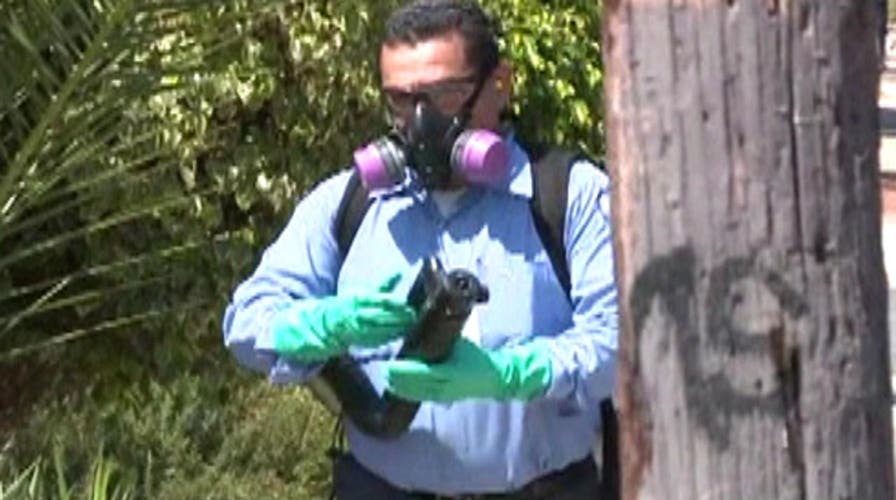Zika fight sparks pesticide debate
Were residents given enough notice before their neighborhood was treated?
Protesters in Miami Beach were able to delay mosquito crews from spraying chemicals to combat the Zika virus Thursday after expressing some concerns.
CBS Miami reported that dozens of demonstrators lined up in front of city hall as local leaders and residents debated about spraying the chemical Naled around town to kill mosquitoes which may carry the virus.
Miami-Dade County Mayor Carlos Gimenez said in a statement that Thursday’s meeting led to the delay of the spray by at least one day.
“We will begin spraying on Friday around 5:00 a.m., weather permitting, and will spray this Sunday, and the following two weekends. This schedule will minimize disruption to our school children and families,” he added.
Residents and local leaders initially met Wednesday to debate to discuss the spraying. However, the debate got heated as residents sought independent experts to weigh in on the chemical use.
“The city of Miami Beach offered a reasonable solution to spray natural pesticide and it was overridden by the state,” Miami Beach resident Michael Capponi told CBS Miami.
Chad Allison, a local business owner, noted that the chemical had been forced out of Puerto Rico and was banned in 22 European countries. Many still believe Naled could pose health risks despite expert advice that the amount of the chemical is too low to be harmful.
Miami Beach Mayor Philip Levine said he wasn’t happy about the decision for the chemical spraying, but said experts have convinced him that it must be done. He added that the amount of mosquitoes caught in traps increasing, signaling an increasing mosquito population.
“It came from the strong recommendation, from what we’ve been told, by the CDC, as well as the surgeon general, the Department of Agriculture and that decision, truly is solely made by the governor of the state of Florida,” Levine said Tuesday.
The recommendation for Naled to be sprayed in the tourist city came after mosquitoes tested positive for the virus last week along with the increase in mosquito population.
The Zika virus has been linked to severe birth defects in children.

